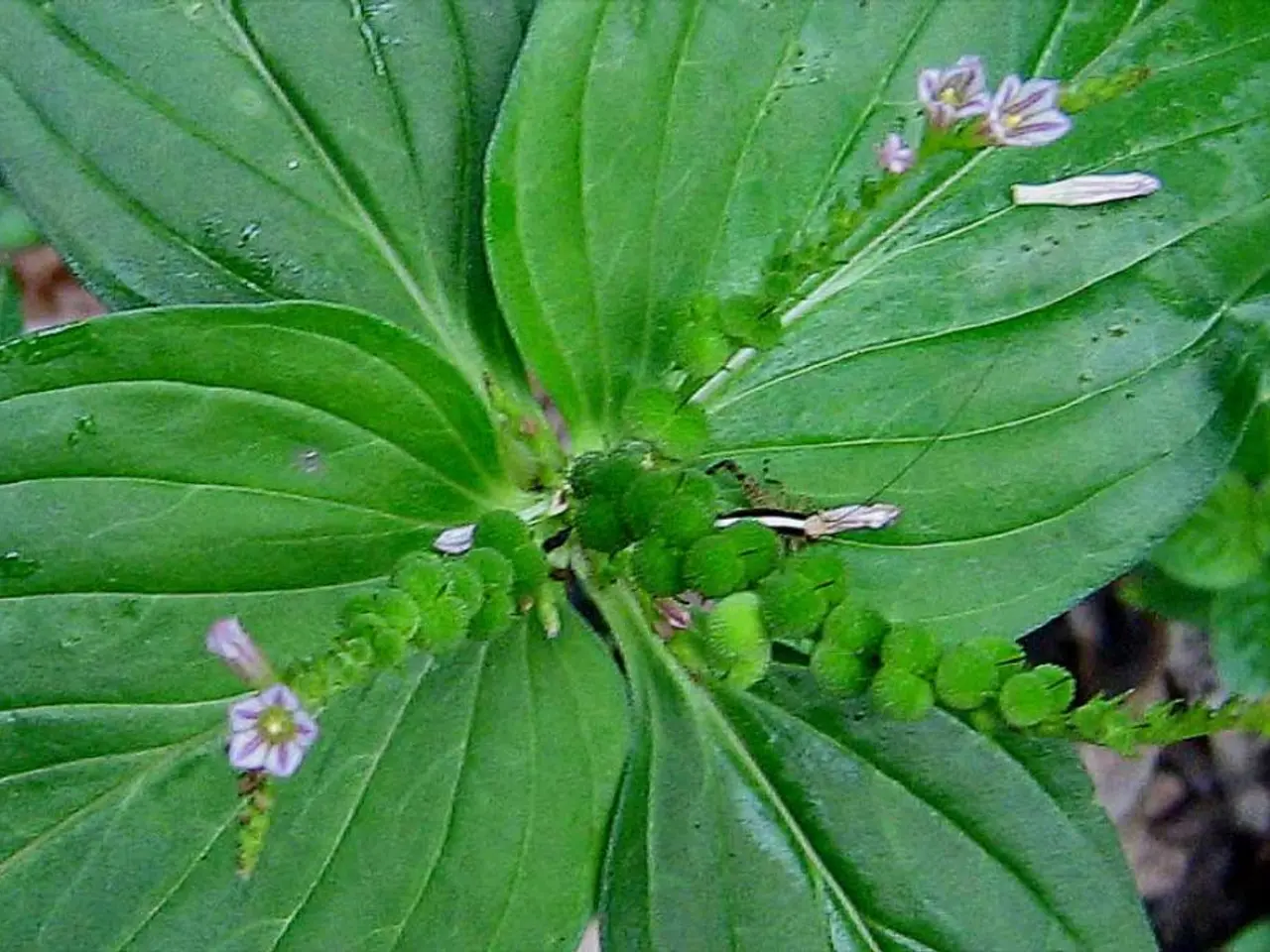Apricot Tree Companions for Vibrant Growth
In the vibrant world of organic gardening, a diverse mix of plants can work together to create a harmonious environment that benefits apricot trees. This symbiotic relationship, known as companion planting, is a natural and effective approach to improving tree growth, deterring pests, and attracting pollinators.
Nitrogen-fixing plants, such as clover and peas, play a crucial role in this ecosystem. These plants enrich the soil by adding nitrogen, a vital nutrient for apricot trees, without competing for resources. Clover, in particular, is noted for its ability to improve soil quality, attract pollinators, suppress weeds, and aid in fruit set.
Aromatic herbs like rosemary and lavender, with their strong scents, serve as a natural barrier against common orchard pests. Herbs such as thyme and basil also repel pests, while attracting beneficial insects. For instance, basil wards off pests like aphids, a common threat to apricot trees.
Flowers like marigolds, nasturtiums, bee balm, and even sunflowers and zinnias, are valuable allies in the garden. These blooms attract pollinators, which are essential for fruit set, and repel harmful insects like aphids and cabbage moths. Bee balm and calendula are particularly noted for their ability to attract pollinators.
Garlic, chives, and mint are other valuable companions. Garlic's strong smell keeps many pests at bay, while chives attract beneficial insects while repelling harmful ones. Mint, on the other hand, is known for its ability to deter ants and certain types of caterpillars.
By planting a diverse mix of these companion species under and around apricot trees, gardeners can create a balanced ecosystem that supports tree health and productivity. This approach improves soil structure, promotes nutrient cycling, and enhances pest control, all key factors for apricot productivity.
Moreover, incorporating ground covers like lettuce or low-growing herbs can suppress weeds, and interplanting with plants that have different root structures helps reduce competition for nutrients. Maintaining biodiversity through a guild of complementary plants contributes to a thriving garden, where apricot trees can flourish without the need for harsh chemicals.
In conclusion, companion planting is a simple yet effective way to foster a friendly environment for apricot trees in organic gardens. By thoughtfully selecting and arranging a variety of plants, gardeners can create a symbiotic system that promotes growth, deters pests, and attracts pollinators, ensuring a bountiful harvest of succulent apricots.
Quality organic gardening practices, such as companion planting, contribute to a lifestyle of health-and-wellness and fitness-and-exercise by promoting vibrant and productive apricot trees. By incorporating plants like nitrogen-fixing clover and aromatic herbs like rosemary, a gardener can fostering a home-and-garden environment where apricot trees thrive, while simultaneously improving soil quality and attracting pollinators. Additionally, incorporating ground covers like lettuce, low-growing herbs, and flowering plants like marigolds helps suppress weeds and create a garden ecosystem that enhances pest control, ultimately leading to a bountiful harvest.




